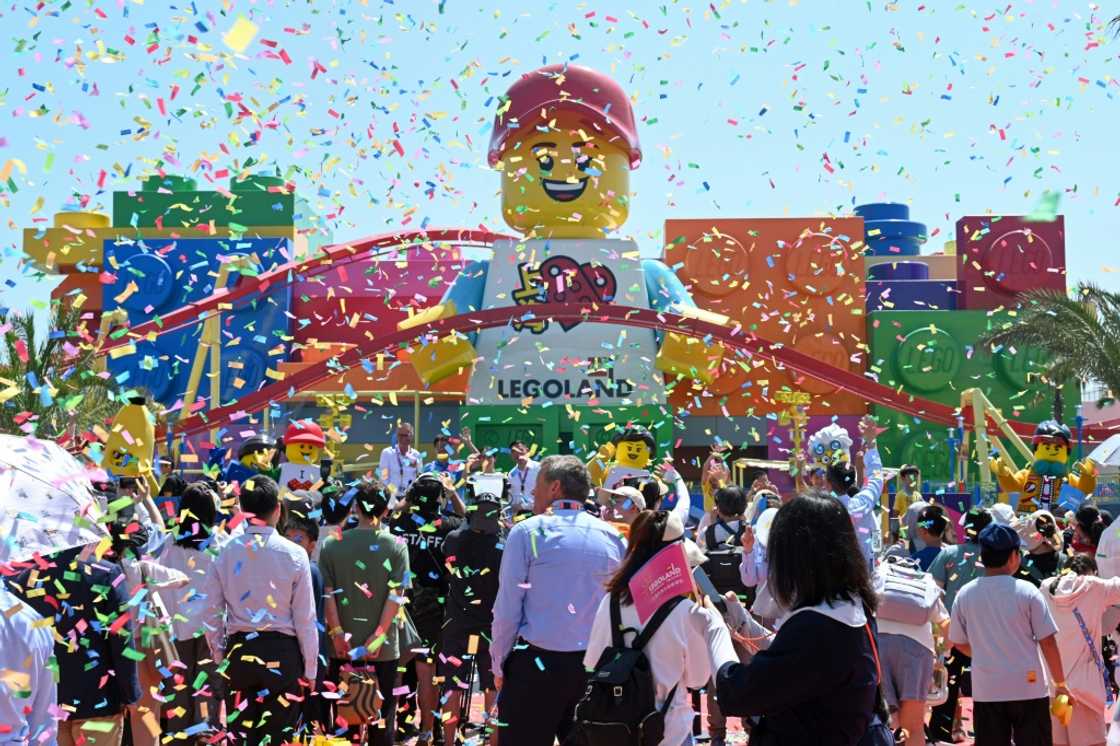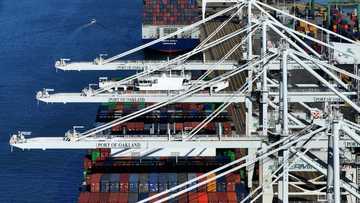China's first Legoland opens to tourists in Shanghai

Source: AFP
Thousands of local tourists poured into China's first-ever Legoland as it opened its gates in Shanghai on Saturday, the latest theme park hoping to capitalise on a domestic tourism boom.
The Chinese branch of the British-owned theme park franchise is the biggest Legoland in the world.
It drew in early customers who flocked to attractions including a miniature train ride and a dragon-themed rollercoaster.
"I personally love to play with Lego blocks and we have many sets at home... so I wanted to come to Legoland at the earliest opportunity," said Shi, a 35-year-old resident of nearby city Hangzhou, who was visiting the park with his wife and child.
Despite the Chinese economy's sluggish growth in recent years, domestic tourist spending grew 18.6 percent in the first quarter of this year compared to the previous year, according to statistics.
"Ever since the pandemic, I've made very few trips abroad," said Shi, adding his family now travels to theme parks around China "many times a year".
Eager Lego fans rushed into the park as soon as it opened, wearing themed shirts and waving branded flags as they enjoyed the 318,000-square-metre (78.5-acre) compound in scorching temperatures.
Beijing has announced subsidies intended to make travelling within the country more affordable for Chinese citizens, and is pushing local governments to heavily market their attractions on social media.
Companies have taken note of the wider local tourism boom and stepped up their plans in China.
A new "Spider-Man" attraction at Shanghai Disneyland broke ground in May, while Warner Brothers is set to open a Harry Potter experience in Shanghai by 2027.
Toy giant Hasbro said this week its giant Peppa Pig park in the city was now "in the phase of creative design".
Chinese collectable toy maker Pop Mart has also opened an attraction in Beijing featuring life-sized versions of its popular Labubu toys.
"The various provinces are putting a lot of effort into expanding their tourism industries, and all of them have special attractions," said Xu, a 34-year-old parent visiting Legoland on Saturday with his children.
But profitability remains a problem, especially for local companies with less brand recognition.
As of late 2024, around 40 percent of parks were still failing to turn a profit, according to state media reports.
Yet analysts point to a growing population of retirees and job market changes as key factors pushing more locals to visit domestic attractions.
"The labour market is turning more flexible," said Ernan Cui, China consumer analyst at Gavekal Research.
"More people have leisure time to travel around."
Source: AFP



